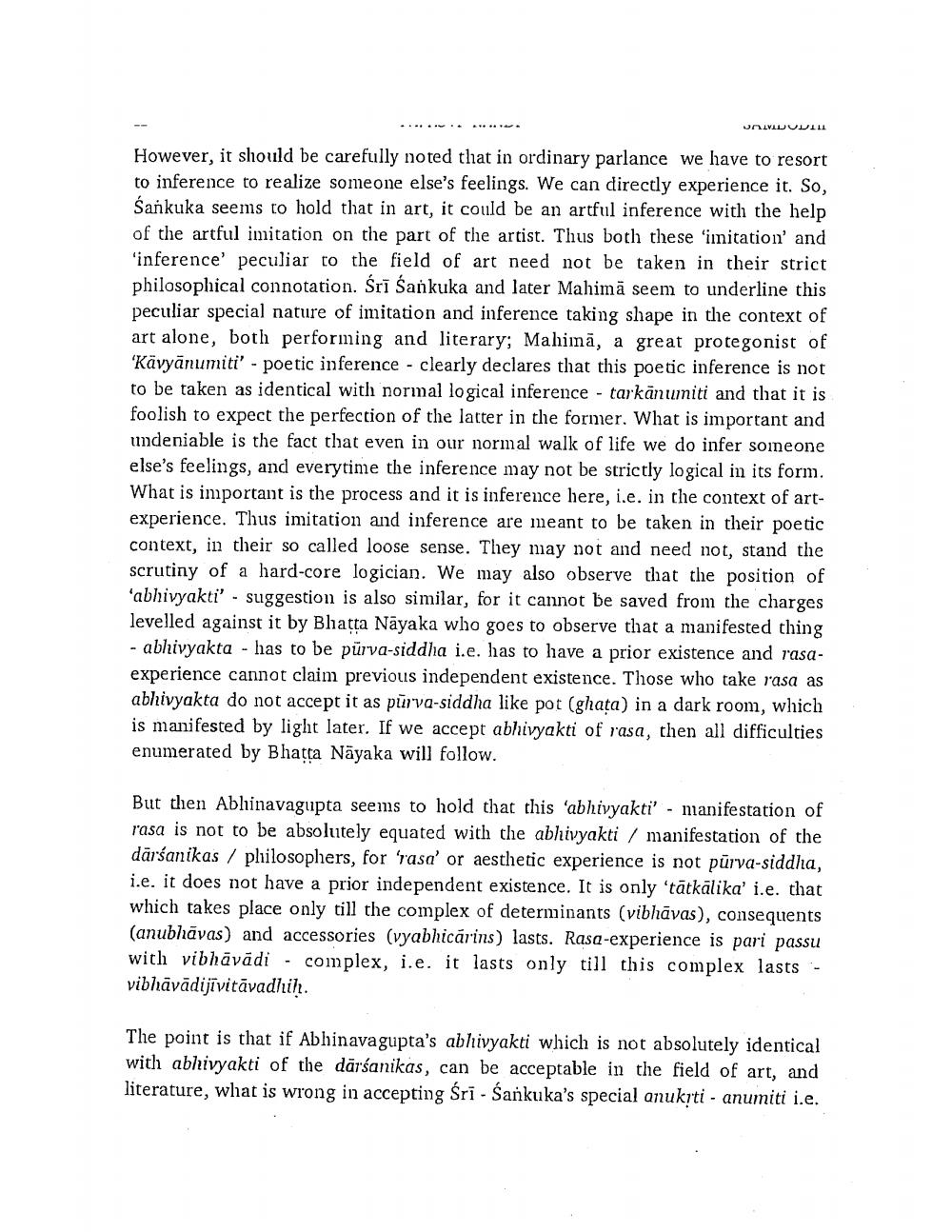________________
UOLLUDII
However, it should be carefully noted that in ordinary parlance we have to resort to inference to realize someone else's feelings. We can directly experience it. So, Sankuka seems to hold that in art, it could be an artful inference with the help of the artful imitation on the part of the artist. Thus both these 'imitation and 'inference' peculiar to the field of art need not be taken in their strict philosophical connotation. Sri Sankuka and later Mahimä seem to underline this peculiar special nature of imitation and inference taking shape in the context of art alone, both performing and literary; Mahimā, a great protegonist of Kävyānumiti' - poetic inference - clearly declares that this poetic inference is not to be taken as identical with normal logical inference - tarkānuniti and that it is foolish to expect the perfection of the latter in the former. What is important and undeniable is the fact that even in our normal walk of life we do infer someone else's feelings, and everytime the inference may not be strictly logical in its form. What is important is the process and it is inference here, i.e. in the context of artexperience. Thus imitation and inference are meant to be taken in their poetic context, in their so called loose sense. They may not and need not, stand the scrutiny of a hard-core logician. We may also observe that the position of ‘abhivyakti' - suggestion is also similar, for it cannot be saved from the charges levelled against it by Bhatta Nayaka who goes to observe that a manifested thing - abhivyakta - has to be pūrva-siddha i.e. has to have a prior existence and rasaexperience cannot claim previous independent existence. Those who take rasa as abhivyakta do not accept it as pūrva-siddha like pot (ghata) in a dark room, which is manifested by light later. If we accept abhivyakti of rasa, then all difficulties enumerated by Bhatta Näyaka will follow.
But then Abhinavagupta seems to hold that this ‘abhivyakti' - manifestation of rasa is not to be absolutely equated with the abhivyakti / manifestation of the dārśanikas / philosophers, for 'rasa' or aesthetic experience is not pūrva-siddha, i.e. it does not have a prior independent existence. It is only ‘tātkālika' i.e. that which takes place only till the complex of determinants (vibhāvas), consequents (anubhāvas) and accessories (vyabhicărins) lasts. Rasa-experience is pari passu with vibhāvādi - complex, i.e. it lasts only till this complex lasts - vibhāvādijīvitāvadhih.
The point is that if Abhinavagupta's abhivyakti which is not absolutely identical with abhivyakti of the dārśanikas, can be acceptable in the field of art, and literature, what is wrong in accepting Śri - Sankuka's special anukịti - anumiti i.e.




